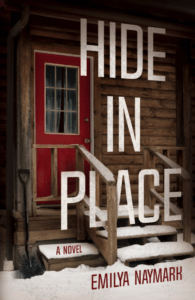Writing Groups—Why Join, Where to Find, and How to Master
Writing is solitary by nature, but almost as soon as we’re done, often before, we want to know what someone thinks of it. We can always ask (beg, nag) a friend or loved one to take a peek, but that doesn’t necessarily pan out. People are busy, or they don’t like the genre, or they don’t know how to talk about writing, or they love you and will lie.
A good writing group can be the haven and safe space a writer needs. And the pandemic is a time when we need the support of others more than ever. Finding a writing group remotely comes with many benefits and a few (unavoidable) drawbacks. Let’s explore!
What makes a group a positive experience for your writing path:
- Encouragement.
A good writing group needs to be good for YOU. It’s important that the other writers are kind. This is not the MFA. It’s a support group for one of the most important aspects of your life—your creative output. Give it a couple of visits and if you’re walking out of the meeting feeling ignored or belittled, find another group. There will be plenty of opportunities for “reality check” critiques on your journey, and a writing group isn’t necessarily it. But, if that’s what you need, there’s a group out there for you. - Writing Expertise
The best kind of writing group will not only nurture your work but improve it. Look for writers whose work you admire and who have become career authors themselves. It will probably not help your own career goals if you’re the most successful peanut in the bowl. Ideally your groupmates will challenge you to a higher level of excellence. I once heard Harlan Coben say that the day everyone in your writing group begins to unilaterally love your work, it’s time to move on. - Format.
Take a look at the format and decide if it’s the right one for you. Some groups, like mine, use a prompt to create new(ish) content fresh at a meeting. Although I might bring an idea to the evening, it’s the prompt that gives it shape. Many other groups take turns reading excerpts written by members during the week and offer critiques at the meeting. Give one of each a try to see what resonates. And if you can’t decide, join two! - Genre.
Whether you’re writing literary, memoir, crime, romance, science fiction or any number of genres or subgenres, there’s a writing group for it. Find one just for you or try a more general one. - Career Support.
Many groups have members who are professional writers. Lots are started by writing collectives or libraries. If you’ve found a group that is encouraging, with a format that makes you happy, in a genre you enjoy, chances are high you will make new friends. And what’s better than a writing buddy? When it’s time to support your publishing journey, your writing group will be there for you.
Benefits of a virtual group:
- You can join a group anywhere in the world. You don’t need to get spiffed up, get into your car or go anywhere on a bus or subway. I’ve even joined my group via the Zoom app on my phone whilst relaxing on a beach. Heaven!
- Your pets, children, and significant others have access to you in case of emergency.
- If you’re Zooming, you can put a nifty background behind you.
- You don’t have to wear pants (but please remember this when you get up for that second glass of wine)
Of course, by now many of us desperately do want to get spiffed up, get into our car, and go somewhere, which brings me to—
Drawbacks of a virtual group:
- Your pets, children, and significant others have access to you.
- Your children and significant others kill the vibe by studying or working next to you, and/or your pet decides to nap on your keyboard.
- Technical difficulties and/or technical learning curves.
- Unlike an in-person group, where you can feel, hear, and sense your group mates’ reactions, Zooming can feel a bit echo-chamber-ish.
Where to find groups?
- com (https://www.meetup.com)has hundreds, if not thousands, of writing groups. That’s where I found mine almost four years ago. And now they are all online. There are even international groups!
- Reach out to your local library system. In addition to book clubs, many libraries host writing groups. And again, nowadays these are virtual.
- Writing Associations.Join a writing association such as MWA (https://mysterywriters.org), Sisters in Crime(https://www.sistersincrime.org), RWA (https://www.rwa.org), or ITW (https://thrillerwriters.org). Join their local chapters, sign up for emails and join their social media. Then, when you’ve read the lay of the land, ask if anybody is in or knows of a writing group. Writers are a friendly bunch, and at least one (or ten, or twenty) will have suggestions.
- Writing Collectives.There are many nonprofit writing collectives. Lots have weekly writing meetings. And now, you guessed it, the meetings are virtual.
- Community Centers.Email your local community centers. Many offer reading and writing groups.
- Start your ownon Meetup.com or float the idea on your writing association’s social media to see if anybody would like to be in a group with you. Chances are high you’re not the only one looking.
The technical side of things:
- For now, Zoom is the clear winner. Anybody can create a free account, and although the free account comes with 30-minute meetings, you can simply schedule two or three back-to-back. The sound quality is good, the latency is minimal, and if you have a fancy enough computer, you can use the aforementioned nifty backgrounds.Where: https://www.zoom.us
How: Sign up for a free account.
If you’d like to host: Download the app to your computer, tablet, or phone. It’s much easier to host via the app than in the browser.
Important: Make sure your device is set to give microphone and camera access to Zoom (check your privacy settings) - Google Meetings are another option. In my experience, they work okay and require a minimal comfort level with technology. However, they’re somewhat less intuitive than Zoom meetings.Where: Make sure you’re signed into your Google account and schedule a meeting, then invite your groupmates.
How: Once you have a meeting going, you can all join with video. As with Zoom, make sure your privacy settings give access to the camera and microphone. - Skype has been on the wane for a few years, and I wouldn’t recommend it, if only because by now so many more people are familiar with Zoom that most existing groups will use that.Where: https://www.skype.com/en/
How: Skype offers many options, from a downloadable app, to meetings directly within a browser. Either way, you will need to create an account and link with your groupmates via their accounts names.
Etiquette:
- DO mute yourself when another member is reading their work.
- DO look like you’re paying attention.
- DO start with the positive feedback. Always!
- DON’T text or surf the web. We all know you’re doing it.
- DON’T be negative in your critique. Always be constructive, especially now when we’re all extra sensitive and weepy. It’s not about what you think is wrong with someone’s writing, it’s about how you think it can be more interesting, or deeper, or clearer.
- DON’T forget you’re not wearing pants.
A writing group can be a tremendous boost to your work ethic—you have to show up and do the work, often weekly. It can lift your self-confidence—a good group will never tear you down. It can improve the quality of your work—make sure to choose a group that will challenge you. It will support you in your career author journey with advice, connections, and invaluable feedback.
So, what are you waiting for? Writing may be a solitary occupation but being a career author is far from it.
 Emilya Naymark’s debut novel “Hide In Place”, is out February 9, 2021 from Crooked Lane Books. Her short stories appear in the Harper Collins anthology A Stranger Comes to Town, Secrets in the Water, After Midnight: Tales from the Graveyard Shift, River River Journal, Snowbound: Best New England Crime Stories 2017, and 1+30: THE BEST OF MYSTORY.
Emilya Naymark’s debut novel “Hide In Place”, is out February 9, 2021 from Crooked Lane Books. Her short stories appear in the Harper Collins anthology A Stranger Comes to Town, Secrets in the Water, After Midnight: Tales from the Graveyard Shift, River River Journal, Snowbound: Best New England Crime Stories 2017, and 1+30: THE BEST OF MYSTORY.
She has a degree in fine art, and her artworks have  been published in numerous magazines and books.
been published in numerous magazines and books.
When not writing, Emilya works as a visual artist and reads massive quantities of psychological thrillers, suspense, and crime fiction. She lives in the Hudson Valley with her family.





